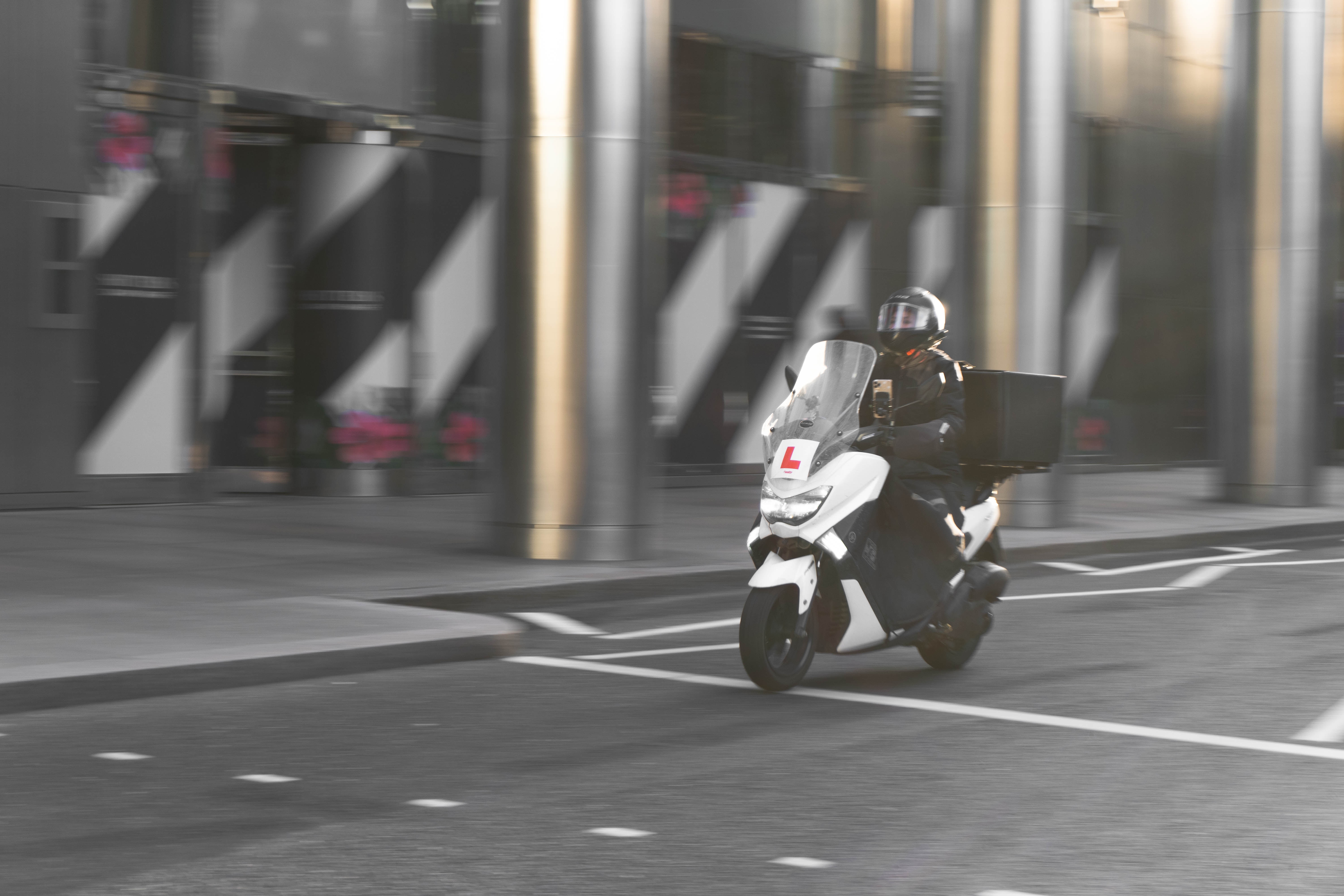
‘Two-gether’ we move: lessons from unleashing the potential of motorcycles in the face of phase out challenges
By Alfie Brierley, director of policy and public affairs, Motor Cycle Industry Association
‘Two-gether’ we move: lessons from unleashing the potential of motorcycles in the face of phase out challenges
By Alfie Brierley, director of policy and public affairs, Motor Cycle Industry Association
In the ever-evolving landscape of transportation policy, one mode often finds itself at a crossroads – powered two wheelers (PTWs). That’s mopeds or motorcycles to most people.
As governments set out ambitious phase out targets for ‘traditional’ combustion engine vehicles, liberating the potential of PTWs, propelling us toward a future characterised by more sustainable and efficient transportation, has been lacking.
In this blog, I look at the challenges presented by PTWs’ impending phase out date (2035), what the Government must do to unlock the full potential of the sector to ensure any chance of meeting this date, and lessons learnt that can hopefully guide other industries navigate members or clients through phase out processes of their own.
Embracing the Challenge
As the automotive industry undergoes a transformative shift toward phasing out traditional internal combustion engine cars, PTWs face distinct
challenges, often overshadowed by their four-wheeled counterparts.
Lesson 1: Proactive Advocacy and Education
Proactively engage with policymakers and stakeholders to educate them about the unique challenges and points of difference within your sector. Highlighting economic, social mobility and environmental benefits is crucial for building early understanding and influencing policy decisions, as the Motorcycle Industry Association (MCIA) has recently done in
the Lords.
MCIA's Action Plan
In response to these challenges, MCIA has taken a proactive stance, unveiling a comprehensive "
Action Plan" designed to help navigate not just the sector through its transition, but the Government too. The Plan, whilst acknowledging the need for change, sets out ten recommendations the Government must implement to harness sector opportunities and surmount obstacles.
Lesson 2: Collaboration and Coalition Building
The success of MCIA's Action Plan lies in its collaborative approach. Industries should actively seek partnerships and build coalitions to amplify their voice. A united front not only strengthens advocacy efforts, but also demonstrates a shared commitment to positive change. Be a critical friend, not critical.
Liberty in Transition
To mitigate the challenges associated with phase out, sectors must be free. For MCIA, this was about
reimagining the role of mopeds and motorbikes in our daily lives. From urban commuting to last-mile delivery services, these vehicles offer an efficient solution, reducing congestion and carbon footprint simultaneously. Shift the narrative away from 'phasing out' to 'intelligently integrating.'
Lesson 3: Framing the Narrative
Shifting the conversation from a defensive 'phasing out' stance to an affirmative 'intelligent integration' message helps shape public perception and garner support. Clear, positive messaging is a powerful tool in public affairs.
Empowering Commuters
PTWs aren’t just a means of transportation; they’re tools of empowerment. Government initiatives should focus on creating incentives for using two wheels, making the transition seamless and attractive. From tax benefits to dedicated parking spaces, there are lots of ways to change commuting habits.
Lesson 4: Tailored Incentive Strategies
Customise advocacy strategies to highlight the diverse benefits of the sector. Tailored incentive programs should be part of the advocacy toolbox. Showing policymakers how their support can positively impact communities strengthens the case.
The Economic Drive
Beyond personal transportation, PTWs play a pivotal role in economic activities such as food delivery and courier services. Policies should be designed to support and encourage businesses to adopt PTWs.
Lesson 5: Economic Impact Advocacy
Industries should actively showcase their economic contributions. Providing policymakers with data on job creation, business growth, and overall economic impact strengthens the argument for supportive policies.
Community Engagement
Government bodies, industry players, and the public should engage in an open dialogue about the challenges and opportunities the sector faces. Awareness campaigns can dispel misconceptions and build a positive image, just as MCIA is doing for
mopeds and motorcycles after years of negative connotations.
Lesson 6: Grassroots Mobilisation
Engaging the community through targeted awareness campaigns, involving local influencers and encouraging public participation in advocacy initiatives can create a groundswell of support that resonates with policymakers.
Conclusion
MCIA's Action Plan provides a roadmap for a thriving PTW sector. Yet, its success lies not in a solo journey, but in a collective drive with the Government to liberate the sector and accelerate the adoption of PTWs.
It's essential not to overlook PTWs—the unsung 'middle child' of transport. If we can snag our spotlight moment, then so can you!